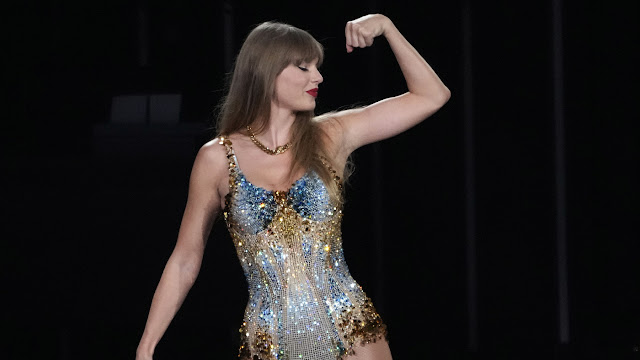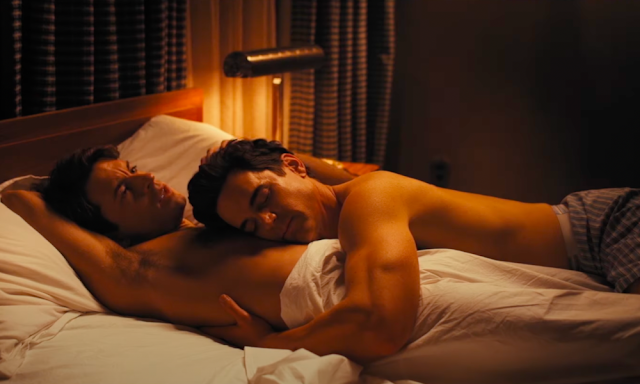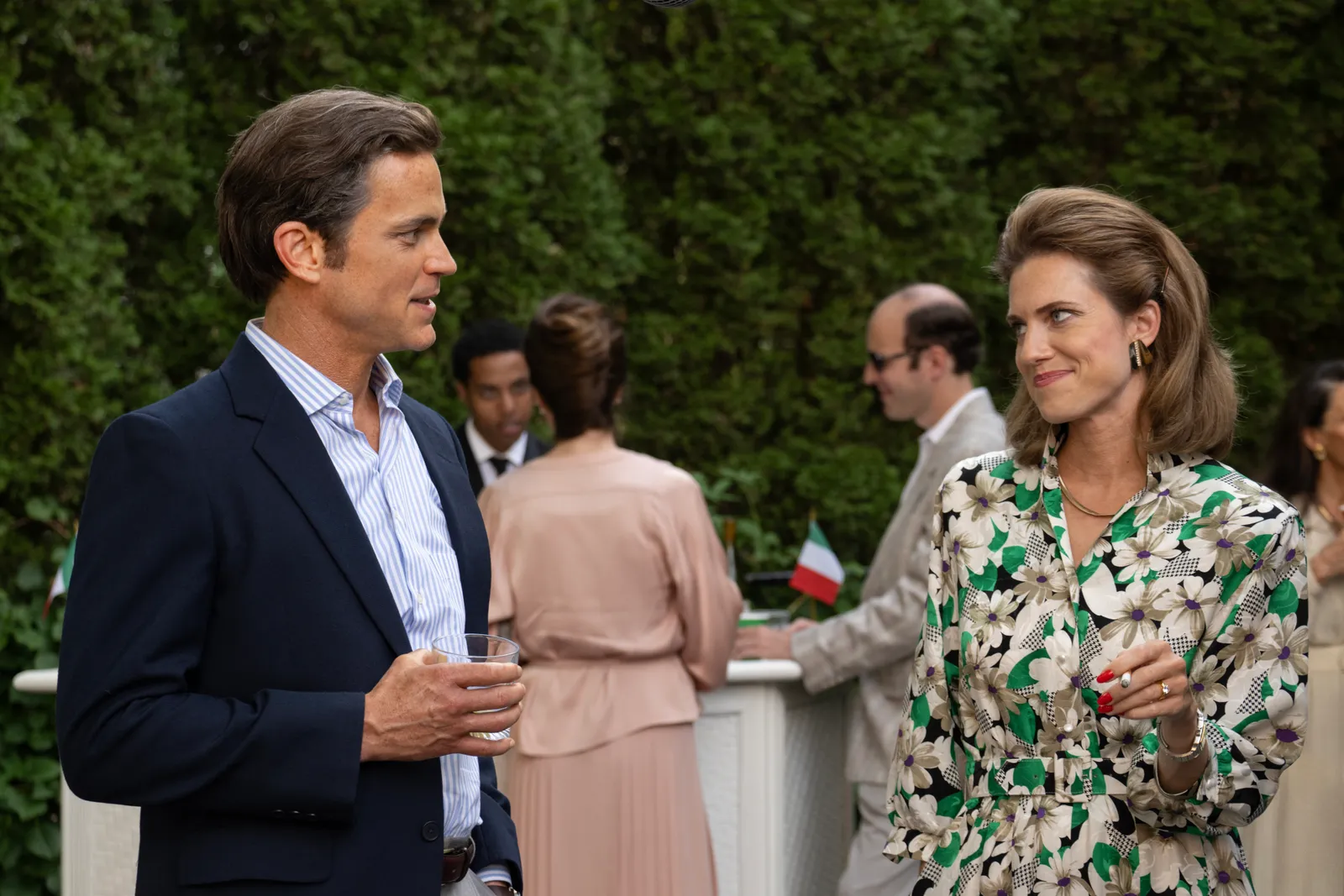In the wake of a known homophobe elected as House Speaker, the sensitive and absorbing McCarthy-era entrenched and Washington D.C.-centric
Fellow Travelers lands on Showtime (episode 1 streaming today, and airing Sunday). America is a splintered country, constantly progressing and regressing like shoreline, with a splintered media landscape; the people who should watch
Fellow Travelers probably won't, but there is much to glean and learn from the miniseries' not-so distant American queer history for both older and newer generations. Based upon a sturdy 2007 novel by Thomas Mallon, the series follows a through-the-decades relationship between Hawkins "Hawk" Fuller (appropriately nicknamed, played by piercing-eyed
Matt Bomer) and Tim Laughlin (
Jonathan Bailey). The first two entries move primarily back and forth between the early 1950s and the mid-1980s, during the AIDS-crisis. The series opens to 1986 with the wistful strands of Stevie Wonder's "If It's Magic" (throughout, songs complement characters and actions), where Hawk is introduced at his roomy house with a Mitt Romney-ish disposition, monied, graying around the temples and married (Lucy, played by
Allison Williams). One of the immediate strains here is trying to make both Bomer and Williams look stodgy and authentically "old"--their aged make-up isn't quite credible, and faintly distracting.
The series, however, hits its stride (so far) plumbing the Lavender Scare, where Hawk, Tim, and others within their career and social circles are swept up. In some ways, it is a glossy and unsurprising depiction, with Philip Glass-y music and smooth photography (shot by frequent Ryan Murphy collaborator, Simon Dennis, whose burnished glow camera work is as lustrous as Boomer's sleek body and countenance), and softly erotic depictions of men talking about McCarthy on a sofa while unbuttoning each others' white Oxford shirts in cigarette smoke haze.

Yet, beyond the surfaces, it's agonizing to see the splitting of couples, the interrogations, the burdens, festering paranoia, and secrets ("Why don't you pretend?" Nat "King" Cole croons after one nighttime street scene after a tryst). It is probably why creator and writer, the intelligent and thoughtful Ron Nyswaner (Philadelphia and recently, co-adapter of My Policeman), and director Daniel Minahan (for episodes 1 & 2), revel in bawdy, explicit sex scenes. These sequences are moments of intense, fleeting pleasure and release for closeted men, and complicated as well, characterizing Hawk's career-climbing shallowness and sexual dominance as barbed and self-protective and the boyish Tim, with his Clark Kent eyewear, fumbling, subservient and sweet. Bailey has a more introspective character to play; in the outset he seems to be looking to advance his State Department career (who in D.C. now and then isn't and wasn't?) but he at least seems to have a political philosophy (one figures, with glimpses of him living in 1980s San Francisco, he will go through significant changes).
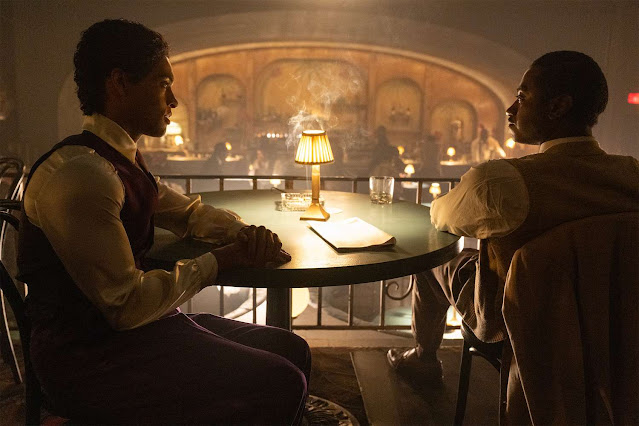
It will be interesting to see the direction this series takes in developing them further. In the second episode, we start to see the denseness of Hawk in particular as we see early interactions with Lucy and trip home to visit his family (Rosemary Dunsmore appears in a standout turn as his mother), flashing back to a prior relationship (objects--a tennis trophy and a D.C. paperweight--are emotional triggers for Hawk, as he continuously seems to bury over his queerness). Also in the mix are Roy Cohn (Will Brill), and Hawk's boss and Lucy's father Senator Smith (Linus Roache in another unrecognizable showing). Marcus (Jelani Alladin) is a Black journalist who has had some history with Hawk, and figures as a somewhat tenuous connection. Hopefully the series will continue to sketch him further--and his deepening flirtation with nightclub singer (Noah J. Rickets, who provides sultry music cues)--as he currently feels a bit adrift from the overwhelming force of Tim and Hawk's relationship.
-Jeffery Berg











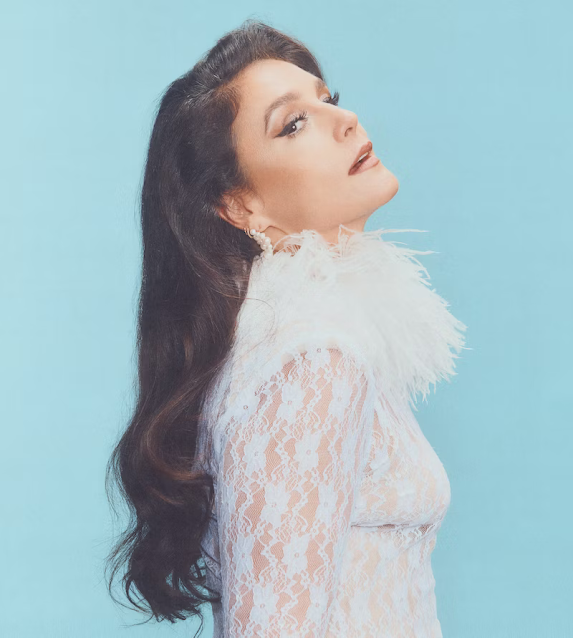







.gif)















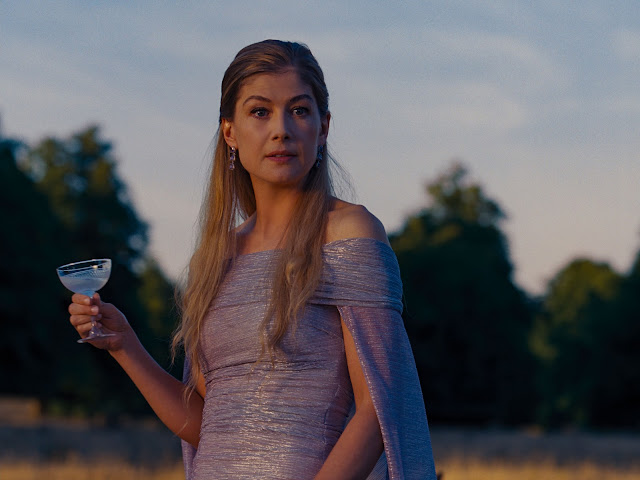



.png)

